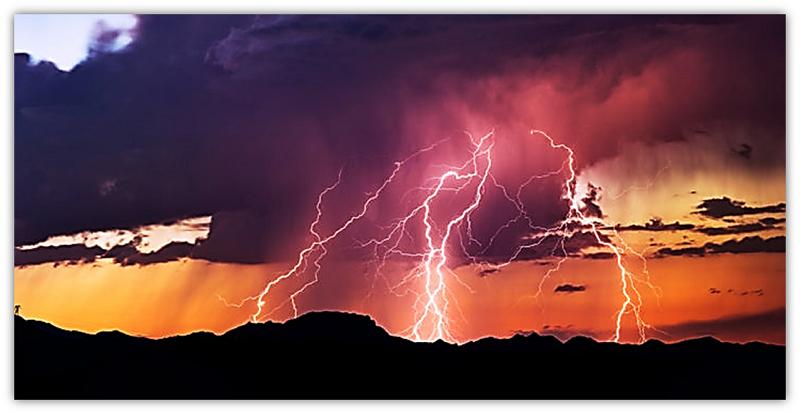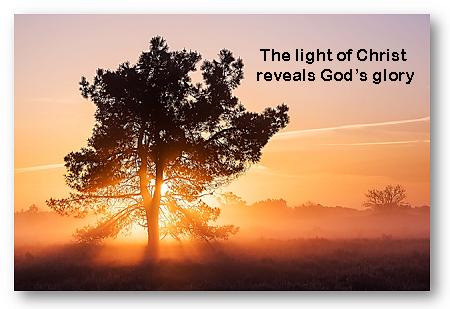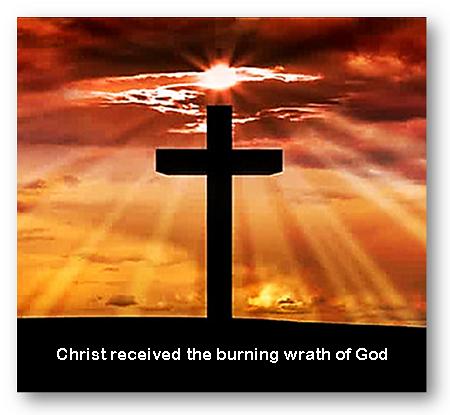Two Fiery Sermons
Two Fiery Sermons
Read Leviticus 9 and Leviticus 10

The narrative of Leviticus 9 and 10 draws attention to two different manifestations of God’s fire: one of grace and one of wrath. These chapters illustrate the age-old contrast between God-revealed religion and man-imagined religion. Chapter 9 records Aaron’s obedience in following God’s detailed instructions for proper worship. God demonstrated His acceptance by revealing His glory and sending a fire to consume the sacrifice (9:23, 24). That was a fire of blessing. Chapter 10 records the disobedience of Nadab and Abihu in their attempt to worship in a way that God did not command. God demonstrated His rejection by revealing His glory and sending a fire to consume the offenders (10:2, 3). That was a fire of judgment.
These two fires are sermons preaching vital lessons about God’s inflexible standards for approaching Him. Triumph and tragedy are side by side. Nadab and Abihu stand as memorials to the narrowness of true religion and God’s just intolerance of sin. Unfortunately, the contrast between God’s way and man’s way is as great today as it was during the days of Moses and Aaron and Nadab and Abihu. The proposition of the two sermons is clear: The acceptable way to approach God and enjoy His glorious presence is through the atonement, and any substitution earns the curse of God. But whether in grace or in wrath, the two fires reveal God’s glory.
The Fire of Grace⤒🔗
The fire of 9:24 was the ultimate proof of God’s acceptance of the worship offered to Him through the sacrifices. Three truths stand out from the narrative about this fire.
Preceded by Obedience←↰⤒🔗
Leviticus 9 has four references to the Lord’s direct commands or to His commands through Moses (vv. 5,7,10, 21). In each instance, the command directed some detail for the sacrifices that were to be offered. In each instance, Aaron, the High Priest, explicitly obeyed as he performed the rituals in behalf of the people he represented. These sacrifices were divinely revealed object lessons to teach key truths about God’s way for man to approach Him. In every way, these sacrifices represented and pointed to Christ, “the Lamb slain from the foundation of the world” (Rev. 13:8).
Since these Old Testament sacrifices had no significance apart from what they taught about Christ, the ultimate Lamb of God, to obey the ritual with faith looking beyond the visible was tantamount to obeying the gospel. God’s blessing is impossible apart from obedience to the gospel. Each of the sacrifices offered combined to teach specific aspects both about Christ’s active and passive obedience. Christ was, is, and will always be the unique and necessary substitute for believing sinners.
Revealed the Glory of God←↰⤒🔗
After Moses and Aaron had finished the divinely prescribed sacrifices, they came out of the Tabernacle and blessed the people. Accompanying the appearance of Moses and Aaron was the glory of the Lord to all the people (9:23). God revealed His splendid glory with the fire coming out from His presence to consume the sacrifice on the altar (9:24). This fire of blessing was unmistakable evidence that God had accepted the way of worship. The fire that fed on the sacrifice pictured the appeasement of divine holiness and proclaimed that man could now approach in peace. Because of propitiation, the Tabernacle became a place of peace, the meeting place between God and men. God is most glorious in salvation.

As the brightness of fire revealed God’s glory to ancient Israel, so the light of Christ reveals God’s glory to the present church. Indeed, Christ is the “Light” whose glory was the glory “of the only begotten of the Father, full of grace and truth” (John 1:9, 14). Paul compared the power of the gospel to God’s creating word. Just as God commanded light to shine in darkness, so He commands the light to shine in the Christian’s heart, revealing “the light of the knowledge of the glory of God in the face of Jesus Christ” (2 Cor. 4:6).
Received with Reverence←↰⤒🔗
The revelation of God’s fire of grace produced two immediate responses (9:24). First, the people yelled. The yelling expressed their enthusiastic excitement over the evidence of God’s favor. This word most often has the idea of shouting for joy and occurs frequently in contexts of salvation (see Isa. 12:6). Praise and thanksgiving must fill the heart and find expression in every life that has experienced the saving grace of the gospel.
Second, the people fell on their faces. Awe filled their hearts, and they prostrated themselves before the Lord. This was an act of worship, which is the inevitable consequence of seeing the glory and grace of God. When Ezekiel saw God’s glory, he fell on his face (Ezek. 1:28). When John saw Christ’s glory, he fell on his face (Rev. 1:17). Seeing God as He reveals Himself in Christ demands that those who see in faith worship in spirit and truth (John 4:24). Although a necessity, worship is the joy and desire of all who have acceptance with God through the atonement of Christ.
The Fire of Wrath←⤒🔗
This was the very first day of Levitical sacrifices in the Tabernacle, and the fire of grace had no sooner fallen than Aaron’s two sons had to die for infringing God’s law. The fire that had just revealed grace became the instrument of judgment. Nadab and Abihu stand as warning to all who think that pedigree or religion are viable alternatives to God’s exclusive way. As the sons of Aaron and nephews of Moses, they had a great heritage. They had accompanied Moses to Sinai when God gave the law (Ex. 24). They were just ordained to the priesthood (Lev. 8). But godly heritage and religious experience alone are not guarantees of spiritual life. Three truths stand out in the narrative.
Precede by Disobedience←↰⤒🔗
Rather than following God’s way, Nadab and Abihu charted their own course. Verse 1 identifies their disobedience as offering “strange fire” something foreign and unauthorized, which the Lord did not command. It was a fire of their own kindling, a fire that had not fed on the sacrifice. Where they got the fire is unknown, but the text implies it was not from the altar. By using their own fire, they altered the symbol God had given; they changed the gospel. The fire of judgment that devoured them (10:2) is vivid witness to the narrowness of true religion. To replace God’s way is nothing but will-worship, which is an abomination to God. Those who attempt to approach God on their own apart from atonement repeat the sin of Aaron’s sons and will share their jeopardy. God’s way of blessing is always through the blood of the one great sacrifice, Jesus Christ.
Revealed the Glory of God←↰⤒🔗
God declared, “I will be sanctified ... I will be glorified” (10:3). God holiness and glory are inseparable. Nadab and Abihu are unwitting testimonies that God is as glorious in judgment as He is in salvation. It is impossible even for man’s sin and rejection of the gospel to distract from God’s glory (Ps. 76:10). The execution of these two priests for their irreverent disobedience taught lessons important to understanding the gospel. First, their death evidenced the inflexible justice of God. God had declared the blood sacrifice as the only way to satisfy justice, and thus every attempt to bypass the blood leads to destruction. Second, their death demonstrates the irresistible power of God. The fire came from heaven, and there was no escape (see Nahum 1:6). Third, their death testifies to the immeasurable goodness of God. That God destroyed them but not those who faithfully obeyed God’s terms assures true believers that “the Lord is good ... and he knoweth them that trust in him” (Nahum 1:7). God’s judgment is infallible.

Received with Reverence←↰⤒🔗
Whereas the fire of grace generated a jubilant worship, the fire of wrath resulted in the worship of silence. After witnessing the destruction of his sons, Aaron “held his peace” (10:3). The priests were to forego the common mourning rites (10:6). Although these were not normal reactions by those losing relatives, it was imperative that those who ministered before the Lord did not grieve over the unmistakable display of God’s justice. The acknowledgment of God’s glory is more important than personal feelings.
God’s fire either consumes the sacrifice or the sinner. The gospel, pictured in the Old Testament sacrifices and accomplished by Jesus Christ, is the only way whereby condemned sinners can escape the fire of judgment. Because Christ received the burning wrath of God on Calvary, every sinner who comes to God through Christ is forever exempt from divine wrath. The same divine justice that demands the full payment of sin will not demand a double payment; judgment cannot fall on those who are in Christ by faith in His shed blood.

Add new comment